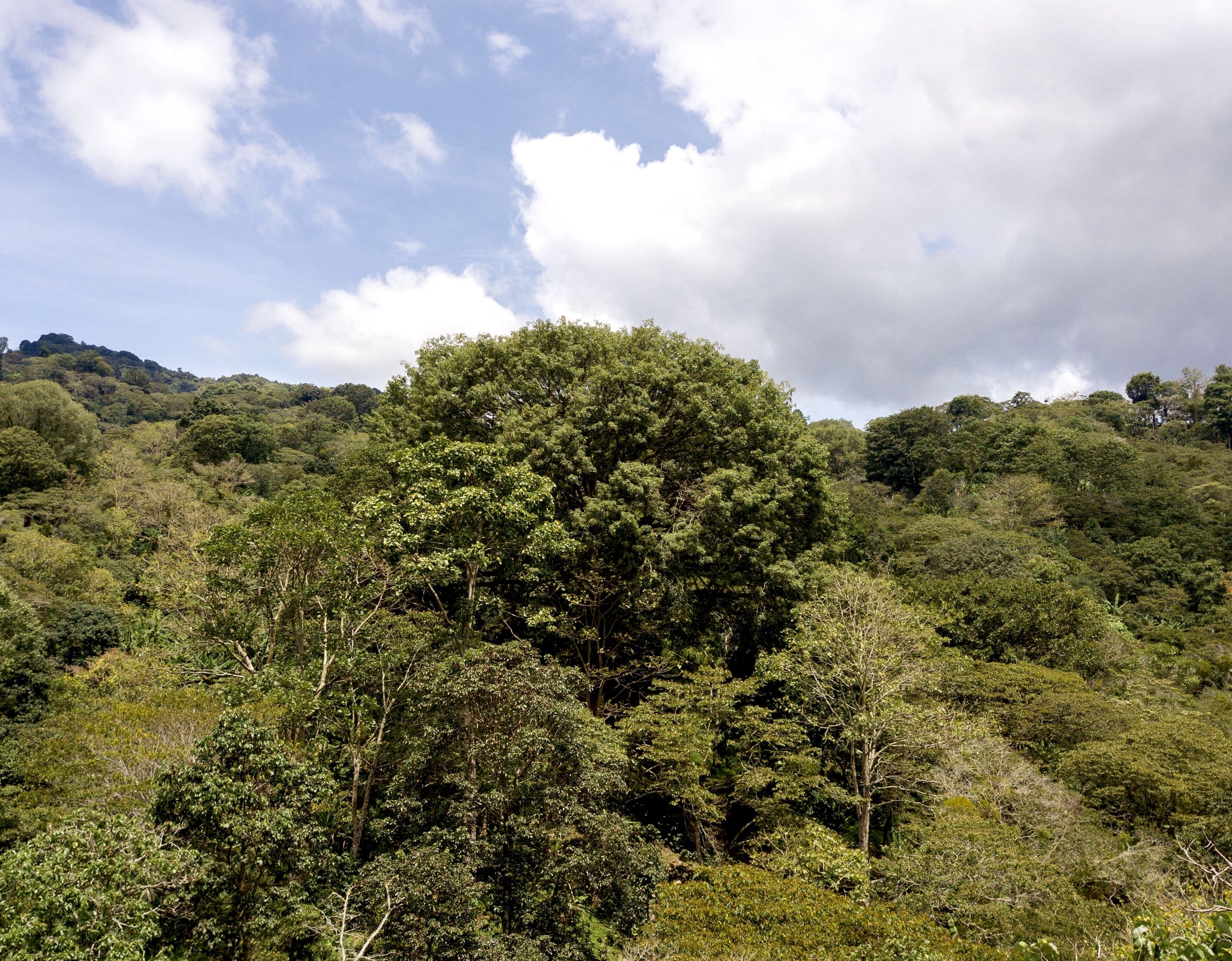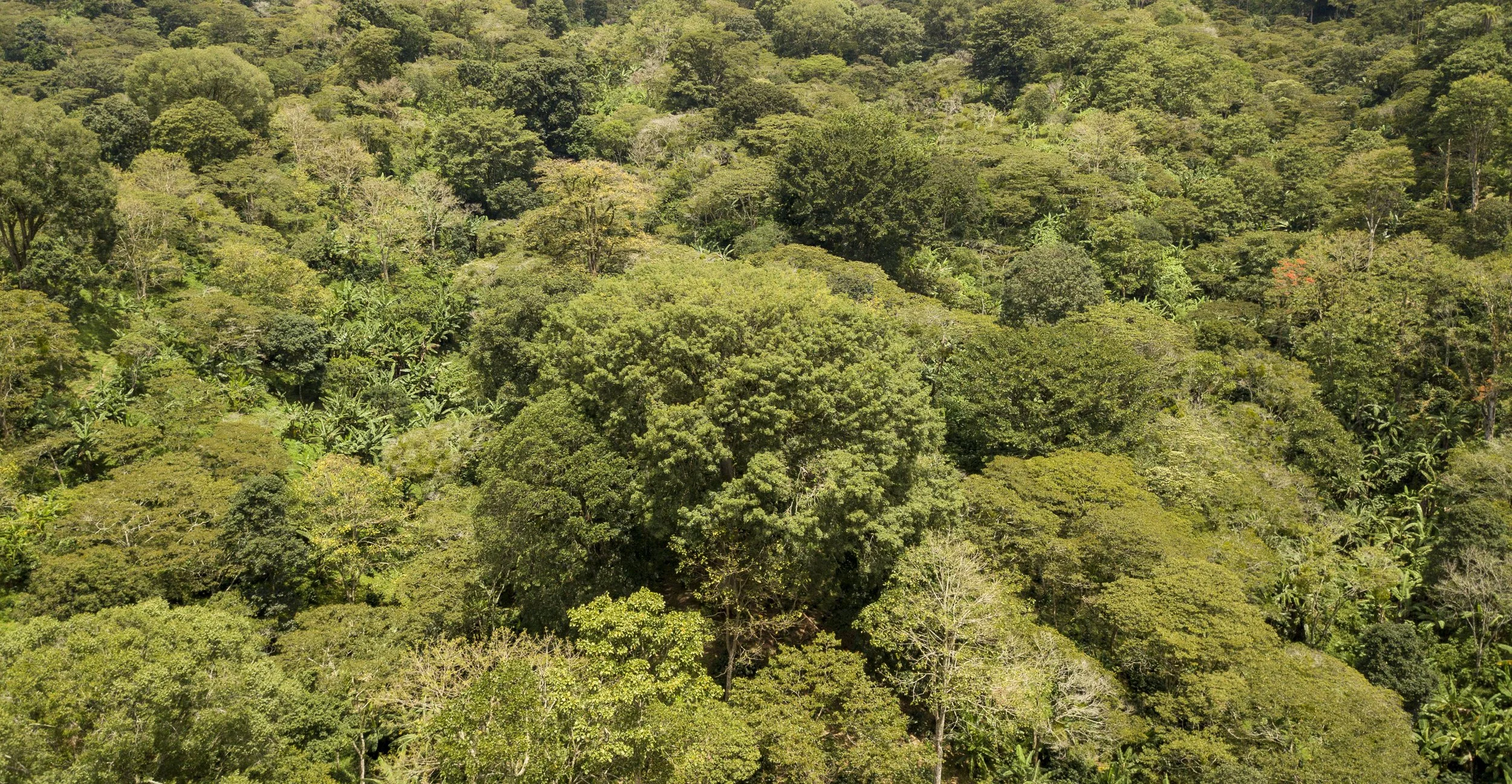el
arbol
SINGLE FARM
〰️
SINGLE FARM 〰️
Producer Claudia Lovo
Farme El Arbol
Region Dipilto
Altitude 1150 – 1300 masl
Harvest Décembre - Avril
Process Carbonic Maceration Natural
Species Arabica
Varieties Lot A: Parainema
Lot B: Pacas
Lot C: Maracaturra
Lot D: Geisha
EL ARBOL
Behind El Árbol Farm stands Claudia Lovo, who acquired it in 2016 in partnership with Sasa Sestic.
Claudia lives on the farm year-round, where she cultivates several varieties of coffee, along with intercrops such as ginger, fruit, and legumes. The farm employs around twenty people who contribute not only to coffee production but also to growing the food consumed on-site. The workers’ meals are partially prepared using ingredients produced directly on the farm.
"El Árbol" means “the tree” in Spanish. The name pays tribute to a majestic tree standing at the centre of the property and reflects the management principles adopted there. Symbolically, this ancient tree at the heart of the farm embodies the central role of nature in its agricultural approach. Trees are preserved, and the use of chemical inputs is strictly controlled — only products classified in the blue or green bands are permitted. The farm functions as a small ecosystem, shared harmoniously between people, farm animals, and a sanctuary for dogs. A portion of the farm’s income is devoted to providing veterinary care for the animals in the shelter.
El Árbol is also a place of experimentation. It is here that the carbonic maceration process for coffee was developed by Claudia and Sasa. This method makes it possible to achieve cup profiles that are fruitier and more complex, while enhancing the value of coffee varieties commonly grown in Nicaragua.
Finally, thanks to the Bridazul project, launched by Claudia in 2019, the farm has become a hub for knowledge-sharing and collaboration. The cold room used for carbonic fermentation is made available to other producers. This community-based approach is perfectly aligned with the philosophy of The Good Sourcing.
CARBONIC MACERATION
This lot undergoes the emblematic Carbonic Maceration process developed by Finca El Árbol as part of the Bridazul project.
Borrowed from the world of winemaking, carbonic maceration allows coffee to develop more fruity notes, while adding body, complexity, and richness to the cup.
First, the coffee cherries are placed in sealed tanks inside a temperature-controlled room — the aim being to keep conditions cool enough to prevent the growth of unwanted bacteria that could lead to alcohol formation.
During fermentation, CO₂ is naturally produced inside the tank, which expels the air through a special valve. The cherries then ferment in an anaerobic environment and in the presence of CO₂. This promotes fermentation from the inside out — in contrast to traditional fermentations that occur from the outside in, such as when yeasts or external ingredients (like fruits) are added.
This stage extends over several days, until the cherries reach a rich, gelatinous texture.
Once removed from the tanks, the cherries are laid out on African drying beds still inside of the cold room in thick layers. After 3 to 5 days of pre-drying, they finish drying on raised beds in the sun.
bridazul: The MOTHER PROJECT
Bridazul is a holistic project launched in 2019 by Claudia Lovo. Its mission is to build lasting bridges between producers and consumers, combining quality, economic and environmental sustainability, and social impact. The project supports around fifty small- and medium-scale producers from the Nueva Segovia region.
Claudia, a Nicaraguan producer and owner of Finca El Árbol, was, together with her partner Sasa Sestic, among the pioneers of carbonic maceration coffee lots in the early 2010s. Their success quickly resonated throughout neighbouring villages, prompting local farmers to seek their guidance. Claudia and Sasa began sharing both their infrastructure and expertise, helping others to produce carbonic maceration coffees and to access broader markets. Their guiding principles are transparency, knowledge-sharing, and mutual support.
In 2019, Claudia succeeded in building a fully equipped processing station, a physical space where producers come together to process their coffees — this place is called Bridazul. More than just a shared beneficio (wet mill), Bridazul is a comprehensive support initiative. It provides agronomic monitoring for soil health, offers training programmes for producers, gives guidance on green coffee sales, and ensures fair remuneration — higher than market prices — that covers production costs and guarantees a sustainable profit margin for each farmer.
CUP PROFILE
Lot A: Parainema
Aromas: Fudge, tropical fruits
Flavors: chocolate, almond, pineapple, red apple
Lot B: Pacas
Aromas: cherry, cacao
Flavors: prune, wild strawberry, chardonnay, butter
Lot C: Maracaturra
Aromas: berries, chocolate, mûre, datte
Flaveurs: raspberry, blackberry, cacao, candy, violet, lime, passion fruite
Lot D: Geisha
Aromas: abricot, wine, cacao, floral
Flavors: passion fruit, milk chocolate, wine, raw cacao










